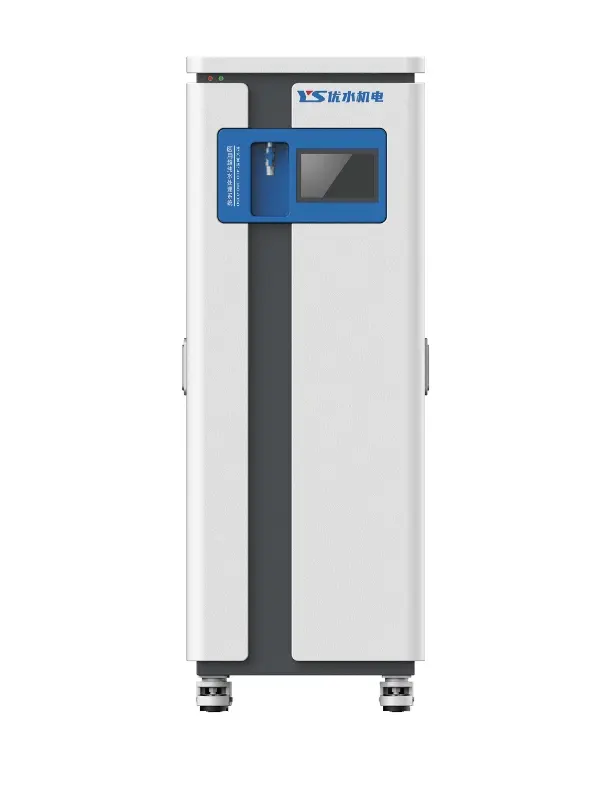In any scientific laboratory, the purity of water is crucial for gaining accurate findings and preserving the integrity of experiments. Ultrapure water systems provide the essential solution for researchers and lab technicians who require water that is free from pollutants that could disrupt their research. Such specialized systems are designed to deliver water with a conductivity level below one micro-siemens/cm, ensuring that impurities such as ions, organics, and microorganisms are thoroughly filtered out.
Selecting appropriate ultrapure water purification systems can profoundly affect the outcomes of research and lab productivity. Among the various options available, ultrapure water reverse osmosis systems stand out for their capacity to consistently generate high-quality water by utilizing sophisticated filtration techniques. In the following text, we will examine the top five ultrapure water systems that are perfect for laboratory settings, helping you make educated choices for your research requirements.

Importance of Highly Purified Water in Laboratories
Ultrapure water is vital for research facilities as it serves as a fundamental reagent in multiple scientific experiments and procedures. The superior purity level of highly purified water minimizes the chance of pollution, which could disturb with sensitive analyses or reactions. Researchers rely on ultrapure water to ensure that their results are correct and consistent, making it a basic element of laboratory excellence.
In addition to its role in experimental integrity, highly purified water is vital for the care of laboratory equipment. Many instruments, such as photometers, chromatographic devices, and gel electrophoresis systems, require ultrapure water to operate correctly. The presence of contaminants can lead to calibration drift, faulty measurements, and potential harm to costly equipment, highlighting the need for reliable ultrapure water purification systems in any laboratory configuration.
Furthermore, the use of highly purified water goes beyond routine tasks; it is also critical in drug production, biotech studies, and the manufacturing of semiconductors. In these industries, even small levels of impurities can lead to significant quality issues, making superpurified water systems crucial for meeting strict regulatory standards. Consequently, investing in a reliable superpurified water RO system is crucial for any lab aiming to achieve top-tier standards in their work.
Key Features to Think About in Ultrapure Water Purification Systems
When choosing an ultra-pure water system for your research facility, it is important to evaluate the filtration technology employed. A reverse osmosis system is a commonly utilized method that effectively extricates a significant majority of impurities, such as salts in solution and biological molecules. Systems that combine various purification steps, such as ion-exchange and membrane filtration, frequently provide increased clarity quality, ensuring that the output meets rigorous testing standards.
Another key feature to assess is the output rate and storage capacity of the high-purity water system. Based on your facility's requirements, it is vital to pick a system that can regularly deliver a sufficient amount of high-purity water without delays. In addition, evaluate systems with built-in tank features, which facilitate convenient access and minimize the waiting time associated with producing water.
Lastly, take into account the upkeep and tracking features of the ultrapure water filtration devices. Systems equipped with real-time monitoring features enable users to track the quality of water, maintenance schedules, and lifetime, ensuring peak efficiency over time. Maintenance simplicity is also vital, as it influences the efficiency of operation and the complete life of the system.
Review of the Best Ultrapure Water Systems
In the selection of the top ultrapure water systems for laboratory use, a standout option that is prominent is the Milli-Q IQ 7003/05 system. This system employs advanced reverse osmosis technology alongside a special deionization process, ensuring consistently high-quality ultrapure water. It delivers a small design with intuitive features, making it suitable for various laboratory environments. The Milli-Q system also offers instant monitoring and simple access to water quality data, which is crucial for ensuring research integrity.
Another leading option in ultrapure water purification equipment is the ELGA PURELAB Flex. Built for labs that need both high volume and high quality, this system includes a mix of reverse osmosis and UV light to destroy contaminants successfully. The PURELAB Flex is versatile, allowing modification to meet particular laboratory needs, and features a digital touchscreen interface that streamlines operation and monitoring. Its performance makes it an compelling choice for any scientific setting.
Finally, the Sartorius Arium Pro is an outstanding ultrapure water reverse osmosis system that combines dependability with innovative technology. It produces ultrapure water appropriate for critical applications, including cell culture and molecular biology. The Arium Pro distinguishes itself with its configurable settings and intelligent warning systems, ensuring that users are continuously informed about the water quality and system performance. https://www.fcc.gov/fcc-bin/bye?https://www.ahyouspurewater.com/category/products/ makes it an excellent choice for labs that require high standards and continuous monitoring of their water purification processes.
